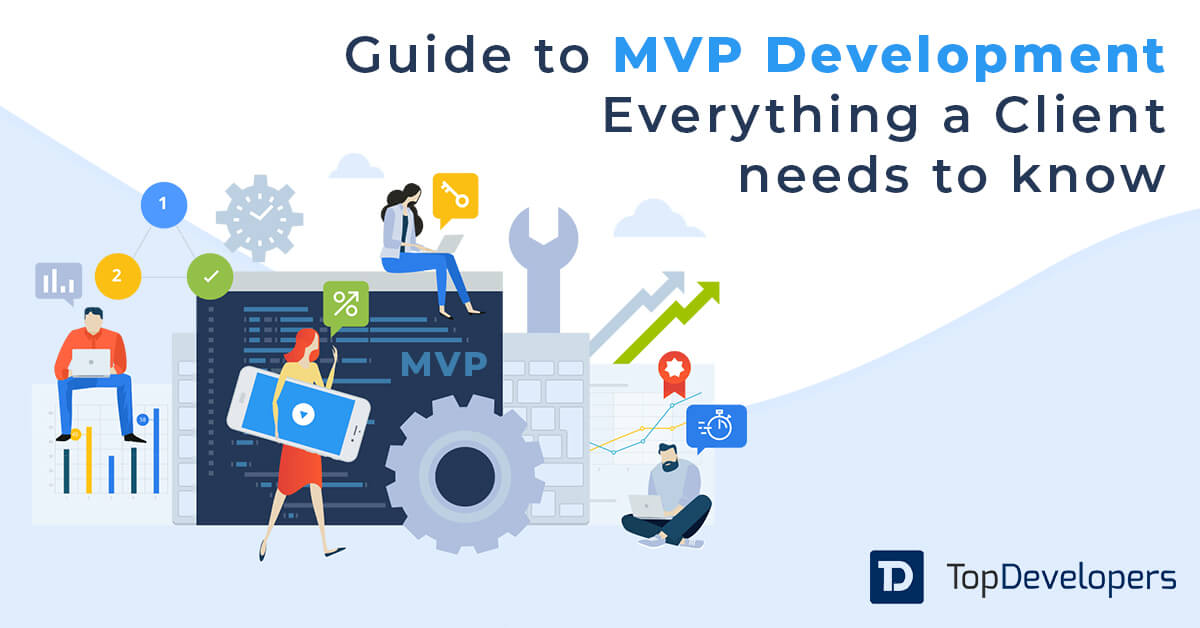
You might have heard the word ‘startup’ thrown around in business circles quite carelessly. The term is often misinterpreted and generalized into a vague definition; a business is considered a startup if and only if –
- It has less than 30 employees
- It is financed via loans, bootstrapping, external investors
- They are not “financially mature” yet, i.e., they are yet to make a considerable amount of profit.
Another distinction of a startup happens to be a unique product or a service that the founders want to bring to the market. These companies generally start with high costs and limited revenue, which is why they look for capital from a variety of sources such as venture capitalists, loans, investors, and many more.
Table of Contents
What is a Startup?
A startup is a business venture typically in its early stages, focused on developing innovative products or services. Unlike traditional businesses, startups emphasize growth potential and scalability, often with a disruptive approach to solving problems. They are usually founded with the aim of bringing something new to the market, attracting investors, and expanding rapidly.
Startups are often driven by entrepreneurial vision, creativity, and the ability to adapt quickly. They are also known for their ability to take on higher risks in exchange for the possibility of higher rewards. The ultimate goal for many startups is to scale quickly, build a sustainable business model, and, in many cases, eventually exit through acquisition or an IPO.
Types of Startups Based on Business Model
Startups can be classified based on the business model they operate under. The model defines how they generate revenue and who their primary customers are. Whether selling directly to consumers, providing services to other businesses, or even working with governments, each startup model has its unique approach to the market. Understanding these models helps entrepreneurs and investors identify the startup’s target audience, growth potential, and challenges they may face.
B2B (Business-to-Business)
B2B startups cater to other businesses by offering products or services that help improve their operations. These startups typically focus on solving pain points in areas like efficiency, automation, supply chain management, and HR. For example, a startup offering accounting software for small businesses or a cloud storage service for enterprises would be categorized as B2B.
B2C (Business-to-Consumer)
B2C startups, on the other hand, sell directly to individual consumers. These startups often focus on retail, e-commerce, entertainment, or personal services. They typically aim to meet consumer demands by providing products or services that are user-friendly and accessible. Examples include online clothing stores, food delivery services, or mobile apps that cater to daily needs.
B2G (Business-to-Government)
B2G startups focus on providing products or services specifically for government entities. These startups often deal with public contracts, such as software for public administration, cybersecurity solutions for government agencies, or infrastructure technology. B2G startups typically navigate a complex regulatory environment and long sales cycles but can tap into steady, large-scale opportunities.
C2C (Consumer-to-Consumer)
C2C startups enable consumers to directly interact and exchange products or services with one another. This model has seen a rise with the growth of online platforms like marketplaces and peer-to-peer services. For example, platforms like eBay, Airbnb, and Uber, where consumers rent or sell to other consumers, exemplify the C2C business model.
Types of Startups that are Leading World Innovation
Startups are often seen as the driving force behind innovation, disrupting traditional industries and creating new markets. Within this dynamic startup ecosystem, certain types of startups are at the forefront of world-changing innovations. These startups not only lead the charge in technological advancements but also set trends that reshape global economies.
Unicorns
Unicorns are privately held startup companies valued at over $1 billion. These companies represent the highest level of success in the startup world, often achieving rapid growth through a combination of disruptive technology, scalability, and strong market demand. Notable examples of unicorns include companies like Airbnb, Uber, and Stripe, which have transformed their respective industries.
Unicorns often receive substantial funding from venture capitalists and play a significant role in shaping global markets. Their innovative products and services have the potential to completely change consumer behavior, influence economies, and even create entirely new industries. As a result, unicorns are considered the trailblazers of the startup ecosystem, leading the way for other startups to follow.
Small business startups
A small business is usually defined as a privately owned company, partnership, or sole proprietorship that has fewer employees and less annual revenue than a corporation or regular-size business.
The difference between a startup and a small business is often vague. Perhaps that’s why many people use the terms interchangeably. Most startups have a scope of being bought out or receiving capital from investors. Small business startups are different.
These businesses are happy staying small and generating small revenue. They rarely have plans of scaling up even to a basic funding round. They might be interested in growth but only at their own pace. Such startups are often bootstrapped or self-funded, meaning that there’s less pressure to scale immediately or be pressured by the immediate needs of investors.
Large Company Startups
Large company startups are established corporations that embrace startup culture to foster innovation and agility within their organization. These businesses create separate divisions or innovation labs to develop new products, technologies, or services that might be outside their traditional offerings. An example of this is Google’s “X” lab, which has led to the creation of breakthrough technologies like self-driving cars and Google Glass.
While these startups operate under the umbrella of large corporations, they maintain the speed and flexibility typical of smaller startups. By embracing a more entrepreneurial mindset, large companies can stay competitive and continue to lead in industries ripe for disruption. This model helps bridge the gap between innovation and practicality, enabling large corporations to remain adaptable in an ever-evolving market.
Buyable startups
Buyable startups are companies that were born to be sold i.e., flip or merge with larger, niche companies. Once they have kick-started their revenues and managed to turn themselves into a lucrative money-making company; they are ready to be bought and can be bought by a big group of companies.
Buyable startups are most commonly found in the mobile and software industry. One of the very famous examples of a buyable startup is Instagram and WhatsApp which was bought by Facebook. Mergers and acquisitions like this happen all the time.
Not all startups need to be profitable to be bought out (and many aren’t). There is a sizable risk for people who are investing their money, but an even larger risk for business owners who get stuck trying to sell off a company that’s bleeding money.
Non-profit startups
Non-profit startups are companies founded with the main goal of helping social, cultural, or environmental issues rather than creating income for stakeholders. Commonly, they are known as Non-Profit Organizations or NGOs.
Non-profits are not set up to make money for people or companies like for-profit businesses are. Any excess funds are reinvested in their objective rather than dispersed as profits.
Non-profit startups are the ones to find loopholes, explore all unmet demands of social concerns, and then work on those concerns to create creative responses. Some non-profit types of startups, with examples, are Oxfam, UNICEF, Care International, etc.
Scalable startups
The four magical words that are proven to be a quick hook of most venture capital investors is known as “highly scalable business models”. In short, scalability defines as the easy growth of the business.
A scalable startup takes a unique and creative idea and looks for a scalable and repeatable business model that will turn it into a lucrative revenue-generating company. Not just a big company but a huge company. It does that by entering a large market and taking share away from incumbents or by creating a new market and growing it instantaneously. One must follow a step-by-step guide to scale up your startup.
The Internet has created a digital space of new and innovative business models. But it comes with a limitation; not every business on the web can scale big. While the Internet has given birth to scalable Internet startups like Google and Facebook (now Meta), it has also created a much, much larger class of web-based small businesses that can’t or won’t scale to a large company. A few are in smaller markets run by founders who either don’t want to scale or can’t raise the capital or acquire the team.
Offshoot startups
As the name suggests Offshoot startups basically stem from bigger parent companies. The parent companies could have been introduced to break into a new market or disrupt a small competition. Because these startups act independently of their parent companies, they have the freedom to do business and experiment without drawing as much scrutiny.
Lifestyle startups
“Love what you do and you won’t work a day in the life” – this is what most lifestyle startup entrepreneurs live by. Such entrepreneurs turn their hobbies and passion into smart, revenue-generating, lifestyle startups. They can make a living by doing what they love.
We can see a lot of examples of lifestyle startups –dancers, for instance. They actively open online dance schools to teach children and adults to dance and earn money this way.
Social startups
One often associates social startups with non-profit organizations that survive solely on charity. But the difference is each social startup has a different funding model. They crowdsource, accept donations, are start these startups despite the general belief that the main aim of all startups is to earn money. There are still companies designed to do good for other people, and they are called social startups.
Many startups fail within the first few years. That’s why this initial period is important. Entrepreneurs need to find startup funding, create a business model and plan ahead, hire key personnel, work out intricate details such as equity stakes for partners and investors, and collect experience for the long run.
Many of today’s most successful companies—Amazon, Apple, Facebook, (Now Meta), to name a few—began as startups and ended up becoming publicly traded companies. So, start building your dream company today!
Types of Startups Based on Industry
Based on industry startups can vary depending on what type of industry they are in. No matter their industry, software product development will be a major part of the goal.
Here are the industry-based types of startups that are most common today:
Biotech Startups
Biotech startups focus on leveraging biology and technology to develop solutions in health, agriculture, and environmental sustainability. These companies work on breakthroughs like gene editing, medical devices, and therapies to address critical health problems. A strong example of a biotech startup is Moderna, which played a pivotal role in developing the COVID-19 vaccine.
Biotech startups require significant investment in research and development, and they often collaborate with universities, research institutions, and government agencies. Their innovations not only save lives but also create new markets within healthcare and agriculture, with potential for global impact.
GreenTech Startups
GreenTech startups focus on creating solutions that help mitigate environmental challenges. These businesses develop products and technologies related to renewable energy, energy efficiency, waste management, and reducing carbon footprints. For example, Tesla’s solar technology and electric vehicle production are prime examples of how GreenTech startups can revolutionize industries.
The demand for sustainable practices is growing, pushing GreenTech startups to the forefront. These companies aim to provide eco-friendly alternatives that not only support the environment but also present profitable opportunities in the global market for clean energy and sustainable living.
AgriTech Startups
AgriTech startups focus on integrating technology with agriculture to improve crop yields, farming efficiency, and sustainability. These startups utilize AI, drones, sensors, and data analytics to address challenges like water usage, pest control, and supply chain inefficiencies. An example of this is CropX, which uses data-driven insights to optimize irrigation practices for farmers.
The AgriTech industry is growing rapidly, driven by the need for smarter, more sustainable agricultural practices to feed the world’s increasing population. As these startups innovate, they help solve critical issues such as food security and environmental degradation while opening new opportunities for technological advancements in farming.
Technology startups
A technology startup is a firm that works to bring technology services to market to address a problem when the answer is not evident and success is not assured. The technology startups may vary depending on their aim and the type of model implemented.
The major difference between tech startups and non-tech businesses is that tech entrepreneurs generate technology improvements that their rivals still need. Tech startups often work on providing seamless tech experience with the aim of improving data security for their users.
Tech startups are also a type of offshoot startups. For example, the company Sidewalk Labs is a part of Google.
eCommerce startups
The next on the list of types of startups are eCommerce startups. Online shopping is just one of several industries that have rapidly expanded in recent years. Many retail shops plan to move their operations online to keep up with the current trend.
As a result, many firms offer their goods or services to clients over the Internet. With a good e-commerce approach, businesses may reach a worldwide audience while incurring little administrative expenditures. So, such a wide business range needs to focus on practices of data security for small businesses to avoid breaches.
Business-to-Business (B2B) and Business-to-Consumer (B2C) are the most frequent eCommerce business models. B2B vendors provide things other companies may need, while B2C sellers sell products to consumers (or the ultimate customer).
Fintech startups
Fintech startups are another type of startup business that uses technology to fulfill customer financial management requirements. They often seek to compete with or replace conventional financial service providers by providing a better experience or simply more efficient solutions to current challenges.
Fintech startups seek to increase efficiency, accessibility, and financial inclusion by harnessing technology and innovation. Fintech firms may create personalized financial solutions, optimize procedures, and save costs using data security practices and artificial intelligence.
Healthtech startups
Healthtech is the fastest-expanding segment of the healthcare industry. It encompasses any technology-enabled healthcare product or service that may be provided or consumed outside of a hospital or physician’s office—hospital and practice management software are prominent exceptions.
They aim to create novel technologies to enhance and prolong people health and well-being. They usually have shorter schedules than conventional tech businesses, which may lead to greater risk-taking. Moreover, as they contain sensitive patient records, they must prioritize data security and secure data of their customers.
SaaS startups
SaaS startups are another industry-based type of startups in entrepreneurship which have become quite popular. These startups offer software as a service, usually through a subscription basis, and often concentrate on providing a specialized software solution to a specific market.
While there are various SaaS firms, they all have the same aim in mind: to provide software that is simple to use and accessible to a large number of people. With the widespread use of SaaS solutions comes a heightened awareness of data security for enterprises.
Moreover, choosing an appropriate SaaS business model for your product is important as it decides how your customers will be attracted and increase sales. Some of the most common revenue models for B2B SaaS firms are Subscription and Freemium.
Education startups
As the name implies, education startups develop creative, cost-effective, and user-friendly instructional solutions that tutors may use to improve student learning results. They will be responsible for bridging the classroom and online learning gap to make education more engaging and accessible.
They aim to create creative software solutions and platforms to assist students in learning and using technology in novel ways. For example, Unacademy, BYJU’S , etc. So, if you plan to get into an education startup, you can look for startup app developers to build one for your firm.
Also, this involves a lot of data management, so these startups need to focus on investments in data security to prevent any data loss and malpractices.
Hybrid startups
Following the pandemic, hybrid companies grew in popularity as they combined the benefits of in-person collaboration with the flexibility of remote work. They may provide the best of both worlds and new challenges and opportunities for entrepreneurs, labor, and customers.
A hybrid startup may also refer to a business that combines fixed parts and systems in its business model. Also, they may implement a business plan that blends for-profit and non-profit operations. However, no matter what model they use, prioritizing security for startups is important to ensure no data breaches or losses.
 Avantika Shergil
| Mar 10, 2025
Avantika Shergil
| Mar 10, 2025
Avantika Shergil is a technology enthusiast and thought leader with deep expertise in software development and web technologies. With over 8 years of experience analyzing and evaluating cutting-edge digital solutions, Avantika has a knack for demystifying complex tech trends. Her insights into modern programming frameworks, system architecture, and web innovation have empowered businesses to make informed decisions in the ever-evolving tech landscape. Avantika is passionate about bridging the gap between technology and business strategy, helping businesses build customized software and website, and understand about different tools to leverage effectively for their ventures. Explore her work for a unique perspective on the future of digital innovation.





